Summer holidays are finally here—time for a well-earned break! After a busy academic year full of timetables, assessments, and revision, secondary pupils deserve some freedom. Whether it’s lie-ins, seeing friends, holidays, hobbies, or just a bit of peace and quiet, rest is essential for teen wellbeing.
But there’s one thing worth keeping in mind—the “summer slide”. This is when knowledge and skills start to fade over the long break. While most people associate this with younger pupils, it affects teens too. The good news? With a few light-touch habits, secondary-aged students can return in September feeling more confident, less rusty, and ready to hit the ground running.
What Is the Summer Slide?
The term “summer slide” refers to the learning loss that can happen when children and teenagers have a long break from education. It’s especially noticeable in core subjects like maths, English, and science. According to research, teens may lose up to 25% of their reading progress and even more in subjects that rely on step-by-step learning like maths. Procedural knowledge—how to solve equations, write essays, interpret texts—fades faster than we expect, especially if it’s not practised.
And it’s not just about academic content. Many teens lose momentum when it comes to managing time, sticking to a routine, or motivating themselves to revise. Without structure, some find it hard to shift gears again in September, making the first few weeks of term a real slog.
Why It Matters
The summer slide can slow down progress and confidence. Teachers often need to spend valuable time reviewing last term’s work rather than moving forward. For pupils in key years—like those entering Year 10 or 11—this can eat into GCSE preparation. Over time, even small yearly losses add up, particularly in subjects that build on previous knowledge.
There’s also a wellbeing angle. Teens often thrive on a bit of routine. Long, unstructured breaks can sometimes lead to boredom, disrupted sleep, and feelings of aimlessness. A little mental stimulation each day can help teens feel more focused, positive, and prepared to return.
Fun, Low-Pressure Ways to Keep Learning Alive
Reading, But Not Just School Books
Encourage daily reading—anything they enjoy. Novels, non-fiction, graphic novels, blog posts, articles or even audiobooks all count. If your teen isn’t into traditional books, suggest something related to their interests—football magazines, music biographies, science podcasts, or mystery thrillers. Reading helps keep vocabulary rich and comprehension sharp, without feeling like a chore. Even 15 minutes a day can make a difference.
You might set the scene with a comfy reading nook or a shared family read-along. Some teens enjoy reading a book and then watching the film adaptation—comparing the two can spark deeper thinking without feeling like schoolwork.
Maths in the Real World
Instead of worksheets, look for everyday maths opportunities. Planning a day out? Budget for food, travel, and entertainment. Cooking? Adjust the quantities in recipes to feed more or fewer people. Building or crafting something? Get the tape measure and calculate area, angles, or volume. The key is showing teens how maths pops up in real life—making it feel more useful and less abstract.
You could also encourage use of maths apps, but set a low bar: 10 minutes every other day keeps their brain ticking without stress. It’s more about consistency than intensity.
Writing Without Pressure
Many teens drop writing completely during summer—but writing is like a muscle; it weakens if it’s not used. Instead of formal essays, they could keep a journal, write blog posts, review films or games, or even draft creative stories. Some might enjoy writing music lyrics, creating character bios for a game, or planning a comic strip. Whatever the format, regular writing helps retain vocabulary, sentence structure, and communication skills.
Creative Projects for Curious Minds
Summer is the perfect time to get hands-on. Creative projects can reinforce school skills without feeling academic. Think making a short film on a phone, building something from recycled materials, creating a family tree, researching a local landmark, or designing a zine or digital comic. These activities foster planning, problem-solving and creativity—all valuable in the classroom too.
If your teen enjoys science or technology, there are loads of free kits and online tutorials to try coding, build a circuit, or explore chemistry experiments with items from the kitchen.
Keeping Some Routine
While it’s tempting to let go of all structure, teens benefit from having a light rhythm to their days. Waking at roughly the same time, having regular mealtimes, and setting aside a short daily learning slot can provide balance. It also makes the return to school far smoother. You could set a soft structure like: creative project on Mondays, reading on Tuesdays, practical maths on Wednesdays, and so on—with plenty of free time around it.
They don’t need to study for hours. A short burst—20 to 30 minutes a day—is enough to keep skills fresh without spoiling the fun of the holidays.
Opportunities Beyond the Classroom
Summer isn’t just a time to revise—it’s a great chance to build wider skills and interests too. Volunteering, taking part in summer clubs, or helping with family projects can foster responsibility, empathy and teamwork. Some teens take on small jobs like dog walking, babysitting, or helping at a local charity shop—all great for real-world learning and growing independence.
There are also plenty of free online courses and workshops, from coding bootcamps to creative writing challenges. If your teen has a subject they’re passionate about, now’s the time to explore it just for the joy of learning.
Keep the Pressure Low
Most importantly, summer learning shouldn’t be stressful. It’s not about being top of the class or rushing through revision guides. It’s about staying curious, engaged, and confident. Encourage your teen to explore their own interests, reflect on what they learned last year, and ease gently into thinking about the year ahead.
If you have a reluctant learner, start small. Celebrate each tiny success: “You read a full article—brilliant!” or “You remembered how to scale up a recipe—great thinking!”

